
Classic switches by the great masters
100 years of Berker switches – 100 years of Bauhaus style
Berker switches and the Bauhaus design school have much in common: alongside the same birth date, 1919, the traditional switch manufacturer from Schalksmühle, Germany, is connected to the cradle of classical modernity in Dessau primarily through a shared affinity for the harmony of appearance and function. Walter Gropius himself, the founder of the Bauhaus school, used Berker switches in his architecturally splendid designs, meticulously crafted down to the last detail, throughout the 1920s. During a recent thorough renovation, Berker series 1930 and series glas switches were once again used in buildings connected to the Bauhaus school in Dessau. Both of these design ranges strictly follow the functional and straightforward line in accordance with Bauhaus principles, without any embellishments or compromises. It is precisely because of this reduction to the very essence that they achieve a timeless aesthetic.
Walter Gropius used round Berker switches in many of his iconic buildings in Dessau, not only in public buildings. Since 1926, the velvety sound of "click" when turning the Berker switch lever has resonated in private residences and workspaces, for example, in the renowned director's office. In this room, from which classical modernity embarked on its successful journey into the world as an unmistakable chapter in the history of architecture, design, and art history, you will find Berker switches and sockets made of glass and bakelite. "Their round appearance simply fit this room best," explains Bauhaus style expert Monika Markgraf. The Berker series 1930 and series glas switches fit the interior concept perfectly today, just as they did in the 20s and 30s of the 20th century. They embody pure functionality. Not only do they reflect the very essence and spirit of Bauhaus style in terms of the materials used, but also in their shape: the circular form of both switches refers to one of the oldest and most significant geometric elements, making the used switches correspond perfectly with Bauhaus principles in the sense of utilizing basic geometric shapes.
Even today, both of these switch series appear authentic and convincing - not only due to their distinctive appearance and nostalgic charm but also because of their precision manufacturing techniques and the fulfillment of all modern requirements. With the same design as the switches and power sockets, you can also have rotary dimmers or data, telephone, or even USB sockets.
Since 2010, Berker switches have been part of the portfolio of Hager. They are available as devices not only for traditional installations, from standard sockets to data technology, shutter switches, dimmers, motion sensors, and thermostats.
Hager, based in Obernai, France, has been a specialist in electrical installations in residential and commercial buildings for more than 60 years. The Czech branch of Hager Electro will celebrate its 25th anniversary in the Czech Republic in 2020. A team of sales, technical, and marketing specialists takes care of Czech and Slovak customers.
Contacts:
Hager Electro s.r.o.
Pražská 238
250 66 Zdiby
Tel: +420 281 045 727
info@hager.cz
www.hager.cz
www.hager.cz/vypinac
Walter Gropius used round Berker switches in many of his iconic buildings in Dessau, not only in public buildings. Since 1926, the velvety sound of "click" when turning the Berker switch lever has resonated in private residences and workspaces, for example, in the renowned director's office. In this room, from which classical modernity embarked on its successful journey into the world as an unmistakable chapter in the history of architecture, design, and art history, you will find Berker switches and sockets made of glass and bakelite. "Their round appearance simply fit this room best," explains Bauhaus style expert Monika Markgraf. The Berker series 1930 and series glas switches fit the interior concept perfectly today, just as they did in the 20s and 30s of the 20th century. They embody pure functionality. Not only do they reflect the very essence and spirit of Bauhaus style in terms of the materials used, but also in their shape: the circular form of both switches refers to one of the oldest and most significant geometric elements, making the used switches correspond perfectly with Bauhaus principles in the sense of utilizing basic geometric shapes.
Even today, both of these switch series appear authentic and convincing - not only due to their distinctive appearance and nostalgic charm but also because of their precision manufacturing techniques and the fulfillment of all modern requirements. With the same design as the switches and power sockets, you can also have rotary dimmers or data, telephone, or even USB sockets.
berker series 1930
Thanks to the material used, either black or brightly white bakelite, the series 1930 switches are particularly suited for renovated old buildings but surprisingly work well with modern architecture featuring clean shapes and straight lines. The appearance of these switches is undoubtedly inspired by the original switches from the Bauhaus era, as they were developed in close collaboration with researchers and experts directly from Dessau. Their characteristic round shape has justly made them a classic among switches.berker series glas
How form elegance can stem from function is perfectly demonstrated by the berker series glas in the version with clear or white-printed glass complemented by a black or white bakelite rotary lever. This series, developed in the late 1970s, but inspired by a much deeper history, embodies a timeless traditional rotary switch. Its striking glass round base and classic shape sensitively complement the most diverse interiors.berker series 1930 Porcelain made by Rosenthal
The uncrowned king among switches: the berker series 1930 made of genuine porcelain from Rosenthal embodies the perfect harmony of noble materials and the highest craftsmanship. In its classic round form, the Berker series 1930 switches, made from the highest quality porcelain, invite you on a double journey through time: while their form refers to modernity, the material used evokes a time that preceded the invention of synthetic materials.Since 2010, Berker switches have been part of the portfolio of Hager. They are available as devices not only for traditional installations, from standard sockets to data technology, shutter switches, dimmers, motion sensors, and thermostats.
Hager, based in Obernai, France, has been a specialist in electrical installations in residential and commercial buildings for more than 60 years. The Czech branch of Hager Electro will celebrate its 25th anniversary in the Czech Republic in 2020. A team of sales, technical, and marketing specialists takes care of Czech and Slovak customers.
Contacts:
Hager Electro s.r.o.
Pražská 238
250 66 Zdiby
Tel: +420 281 045 727
info@hager.cz
www.hager.cz
www.hager.cz/vypinac
The English translation is powered by AI tool. Switch to Czech to view the original text source.
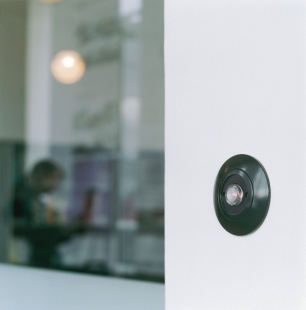
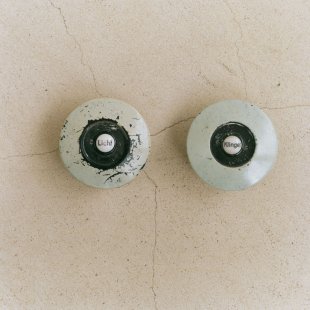
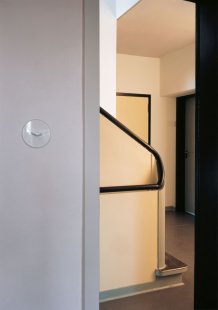
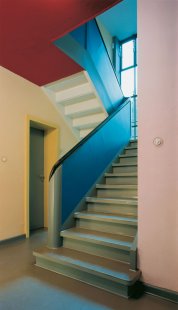
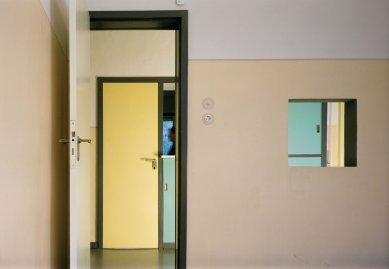
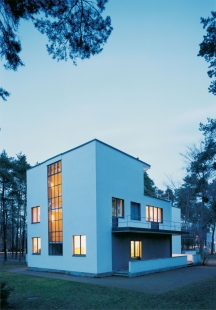
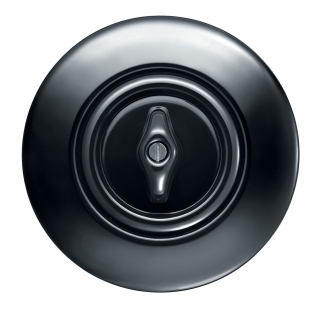
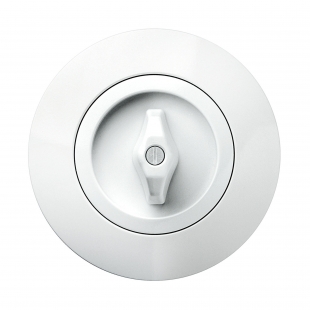

0 comments
add comment
Related articles
0
16.12.2020 | What does it look like in the first gin distillery in Prague?
0
04.11.2020 | <ultrathin switches berker R.8: Less is more</ultrathin switches berker R.8: Less is more>
0
19.10.2020 | Selection of switches and electrical installation: trivial or not?
0
09.10.2020 | Apartment with a view of the Vltava
0
17.08.2020 | Harmony of neutral colors in an apartment in Vinohrady
0
14.07.2020 | Dreamy House of Franz Kafka
0
24.03.2020 | Byt K Brno – a symphony of wood and concrete in a new residential complex
0
25.02.2020 | Flat with a Bay Window: Small Big Apartment in the Heart of Prague's Old Town
0
09.12.2019 | Distinct brass accents in an apartment for a young student
0
06.11.2019 | Perfectly more than you could imagine: Berker illuminated switches
0
18.10.2019 | The celebration of 100 years of Berker switches and the Bauhaus school took place at Winternitz Villa
0
04.09.2019 | New Berker R.8 switches: Because less is more
0
15.08.2019 | Switches Hager Manufaktura: new materials in exclusive small series
0
10.07.2019 | Generous duplex apartment in the center of Prague
0
30.10.2018 | How to save on housing? With Hager intelligent electrical installations!
0
04.07.2018 | Retro rotary switches from Hager highlight the successful reconstruction of the monastery complex in Český Krumlov
0
21.03.2018 | Design like grandma's vs. technology for the 3rd millennium












